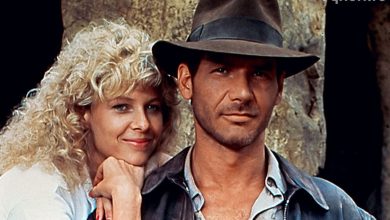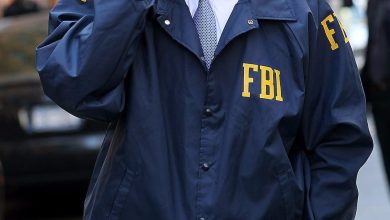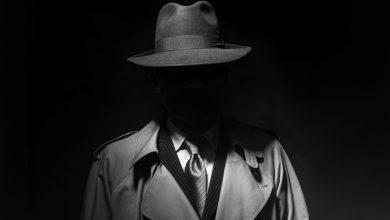Is Vladimir Putin the James Bond of Politics?

In the realm of politics, few figures have captured the collective imagination quite like Vladimir Putin, the enigmatic President of Russia. Often compared to the iconic fictional spy James Bond, Putin’s political career is marked by a mix of intrigue, power plays, and strategic maneuvering. This article delves into the question of whether Putin can be considered the James Bond of politics, exploring the various aspects of his leadership, background, and influence on the global stage.
Key Takeaways
- Vladimir Putin, the President of Russia, has been likened to James Bond due to his mysterious background, political intrigue, and geopolitical maneuvering.
- As a former KGB officer, Putin’s involvement in intelligence operations adds an air of secrecy and mystery to his persona.
- Putin’s carefully cultivated public image and charismatic appeal have contributed to comparisons with the charismatic British spy.
- While the comparison between Putin and Bond is intriguing, it is crucial to distinguish between fiction and reality, recognizing the real-world implications of Putin’s actions and decisions.
In the realm of politics, there are figures who captivate our imagination, displaying a certain aura of mystery, power, and influence. One such enigmatic personality is Vladimir Putin, the President of Russia. Often referred to as a modern-day James Bond, Putin’s actions and persona have sparked comparisons to the iconic fictional spy. In this article, we will delve into the various aspects of Putin’s political career and assess the validity of this intriguing comparison.
Vladimir Putin: The Political Maestro
Born on October 7, 1952, in Leningrad (now Saint Petersburg), Russia, Vladimir Vladimirovich Putin has had a long and illustrious career in Russian politics. From serving as a KGB officer to becoming the President of Russia, Putin’s rise to power has been marked by his strategic maneuvers and astute decision-making.
A Mysterious Background
One parallel between Putin and James Bond lies in their mysterious backgrounds. While Bond is a fictional character with a classified history, Putin’s past is shrouded in secrecy and intrigue. As a former KGB officer, his involvement in intelligence operations adds an air of mystery to his persona. This secrecy has fueled speculations and conspiracy theories, enhancing the comparison to the renowned spy.
Political Intrigue and Geopolitical Maneuvering
Much like James Bond’s role as a British secret agent, Putin has been known for his political intrigue and geopolitical maneuvering. His actions on the global stage have often surprised and perplexed world leaders. From the annexation of Crimea to Russia’s involvement in the Syrian conflict, Putin has displayed a knack for strategic moves that have reshaped the geopolitical landscape.
The Cult of Personality
Another aspect that aligns Putin with Bond is the cult of personality surrounding them. Both figures have a certain charm and charisma that captivate the public’s imagination. Putin’s carefully curated public image, showcasing his physical fitness and adventurous hobbies like judo and horseback riding, adds to the perception of him as a real-life action hero.
International Spy Games
While James Bond is known for his daring spy missions, Putin’s involvement in intelligence operations during his time with the KGB draws parallels to the world of espionage. Allegations of Russian interference in foreign elections and cyberattacks have brought Putin’s government under scrutiny, reinforcing the notion that he operates in a manner reminiscent of a political spy.
The Power Play
One cannot ignore the power and influence wielded by both Putin and Bond. Putin’s leadership style, often characterized as authoritarian, has consolidated his control over Russia’s political system. Similarly, Bond, as a fictional character, embodies the power and authority of the British intelligence apparatus.
The Comparison Unraveled
While the comparison between Putin and James Bond holds some intriguing parallels, it is essential to recognize their fundamental differences. Bond is a fictional character created for entertainment, whereas Putin is a real-life political leader. The actions and consequences of Putin’s decisions have significant real-world implications, making any comparison to a fictional spy inherently limited.
FAQ
1. What is the background of Vladimir Putin?
Vladimir Putin’s background is rooted in his early career as a KGB officer. Born in Leningrad (now Saint Petersburg), Russia, in 1952, Putin joined the Soviet Union’s intelligence agency, the KGB, after graduating from university. During his time in the KGB, he served in various capacities, including foreign intelligence and counterintelligence. The details of his specific assignments and operations remain classified, contributing to the air of mystery surrounding his background. Putin’s experience in the KGB equipped him with valuable skills in intelligence gathering, analysis, and strategic thinking, which have influenced his approach to politics.
2. How has Vladimir Putin shaped Russia’s political landscape?
Vladimir Putin has played a significant role in shaping Russia’s political landscape over the years. Since assuming the presidency in 2000, he has implemented policies aimed at consolidating his power and asserting Russia’s influence both domestically and internationally. Putin’s leadership style, characterized by a centralization of authority and a crackdown on dissent, has allowed him to maintain control over the political system. His government’s actions, such as the annexation of Crimea in 2014 and involvement in the Syrian conflict, have redrawn geopolitical boundaries and bolstered Russia’s position on the world stage. Putin’s policies and actions have elicited both praise and criticism, highlighting the significant impact he has had on Russia’s political landscape.
3. How does Vladimir Putin compare to James Bond in terms of charisma?
Both Vladimir Putin and James Bond possess a certain level of charisma that has captivated the public’s imagination. Putin, through his carefully cultivated public image, exudes confidence, charm, and a sense of adventure. His physical fitness, participation in sports like judo, and publicized hobbies like horseback riding contribute to his charismatic appeal. On the other hand, James Bond, as a fictional character, embodies charisma through his suave demeanor, wit, and ability to handle high-pressure situations with composure. While Putin and Bond may differ in the specific traits that make them charismatic, both have managed to cultivate a charismatic persona that appeals to their respective audiences.
4. What are the key differences between Vladimir Putin and James Bond?
While comparisons have been drawn between Vladimir Putin and James Bond, it is crucial to recognize their fundamental differences. Firstly, James Bond is a fictional character created for entertainment, while Putin is a real-life political leader. The actions and consequences of Putin’s decisions have real-world implications, whereas Bond’s adventures exist within the realm of fiction. Additionally, Putin’s leadership role requires a complex understanding of geopolitics, domestic policies, and international relations, while Bond’s character operates within a highly stylized world of espionage. Lastly, the cult of personality surrounding Putin is a result of his real-life political career, while Bond’s charisma and appeal stem from his fictional allure as a spy.
5. Has Vladimir Putin been involved in intelligence operations?
Yes, Vladimir Putin has been involved in intelligence operations during his time as a KGB officer. As a young intelligence officer, he worked in the foreign intelligence division of the KGB, where he was tasked with gathering information and conducting covert operations. While the specifics of his activities remain classified, it is well known that Putin received training in intelligence gathering, analysis, and espionage techniques. This background in intelligence operations has undoubtedly shaped his approach to politics and influenced his understanding of power dynamics on the global stage.
6. How has Vladimir Putin consolidated his control over Russia’s political system?
Vladimir Putin has employed various strategies to consolidate his control over Russia’s political system. One key aspect has been centralizing power within the presidency. Through constitutional amendments and changes to the political system, Putin has expanded the authority of the executive branch, allowing him to exert significant influence over the government and decision-making processes. Additionally, his government has implemented measures that restrict political opposition, such as cracking down on dissenting voices, controlling the media landscape, and enacting legislation that tightens regulations on political activities. These efforts, combined with Putin’s popularity and strategic maneuvering, have played a crucial role in solidifying his control over Russia’s political system.
7. How has Vladimir Putin influenced the geopolitical landscape?
Vladimir Putin’s actions as the President of Russia have had a substantial impact on the geopolitical landscape. One notable example is the annexation of Crimea in 2014, which challenged the established norms of territorial integrity and sovereignty. This move reshaped the geopolitical dynamics in the region and strained Russia’s relationships with other countries. Furthermore, Putin’s government has been actively involved in the Syrian conflict, providing military support to the Syrian government. This involvement has altered the balance of power in the region and complicated diplomatic efforts to resolve the conflict. Overall, Putin’s geopolitical maneuvers have positioned Russia as a significant player on the global stage and have had far-reaching consequences.
8. What are some criticisms of Vladimir Putin’s leadership?
Critics of Vladimir Putin’s leadership point to several concerns. One of the main criticisms is the shrinking space for political opposition and suppression of dissenting voices. Putin’s government has been accused of suppressing free speech, curbing media freedom, and limiting political competition through restrictive legislation. Human rights violations, including allegations of political persecution, have also drawn criticism. Another concern is the concentration of power in the executive branch, which some argue undermines checks and balances within the political system. Furthermore, there are concerns about Russia’s alleged interference in foreign elections and cyberattacks, which have strained its relationships with other countries. These criticisms reflect the complex challenges and controversies surrounding Putin’s leadership.
9. How has Vladimir Putin cultivated a strong public image?
Vladimir Putin has carefully cultivated a strong public image through various means. One aspect is his emphasis on physical fitness and adventurous pursuits. His public appearances engaging in activities like judo, horseback riding, and fishing project an image of vitality and strength. Additionally, Putin has used media outlets to portray himself as a decisive leader, frequently appearing in televised events and press conferences to address national and international issues. His image is also bolstered by state-controlled media, which often presents him in a positive light. Through these carefully crafted strategies, Putin has managed to create a public image that resonates with many Russians and contributes to his perceived leadership qualities.
10. How will Vladimir Putin’s legacy be remembered?
Vladimir Putin’s legacy as a political leader will likely be remembered as a subject of ongoing analysis and debate. While some view him as a strong and decisive leader who restored stability and national pride in Russia, others criticize his approach to governance and raise concerns about democratic norms and human rights. His influence on the geopolitical landscape, both through assertive actions and strategic maneuvers, will also shape how he is remembered. The impact of his policies, domestically and internationally, will continue to unfold in the years to come, influencing assessments of his legacy. Ultimately, how history views Putin will depend on the perspectives and interpretations of future generations.
Conclusion
In the world of politics, the comparisons drawn between Vladimir Putin and James Bond serve as a testament to the captivating nature of Putin’s political career. With a mysterious background, strategic geopolitical maneuvering, and a carefully curated public image, Putin embodies certain characteristics that align with the iconic fictional spy. However, it is important to remember that Putin’s impact on the world goes beyond mere comparisons to a fictional character. As a real-life political leader, his decisions and actions have far-reaching consequences that shape the global political landscape. While the allure of the Putin-Bond analogy is undeniable, it is essential to recognize the complexities and nuances of Putin’s leadership and his enduring legacy in the realm of politics.









One Comment